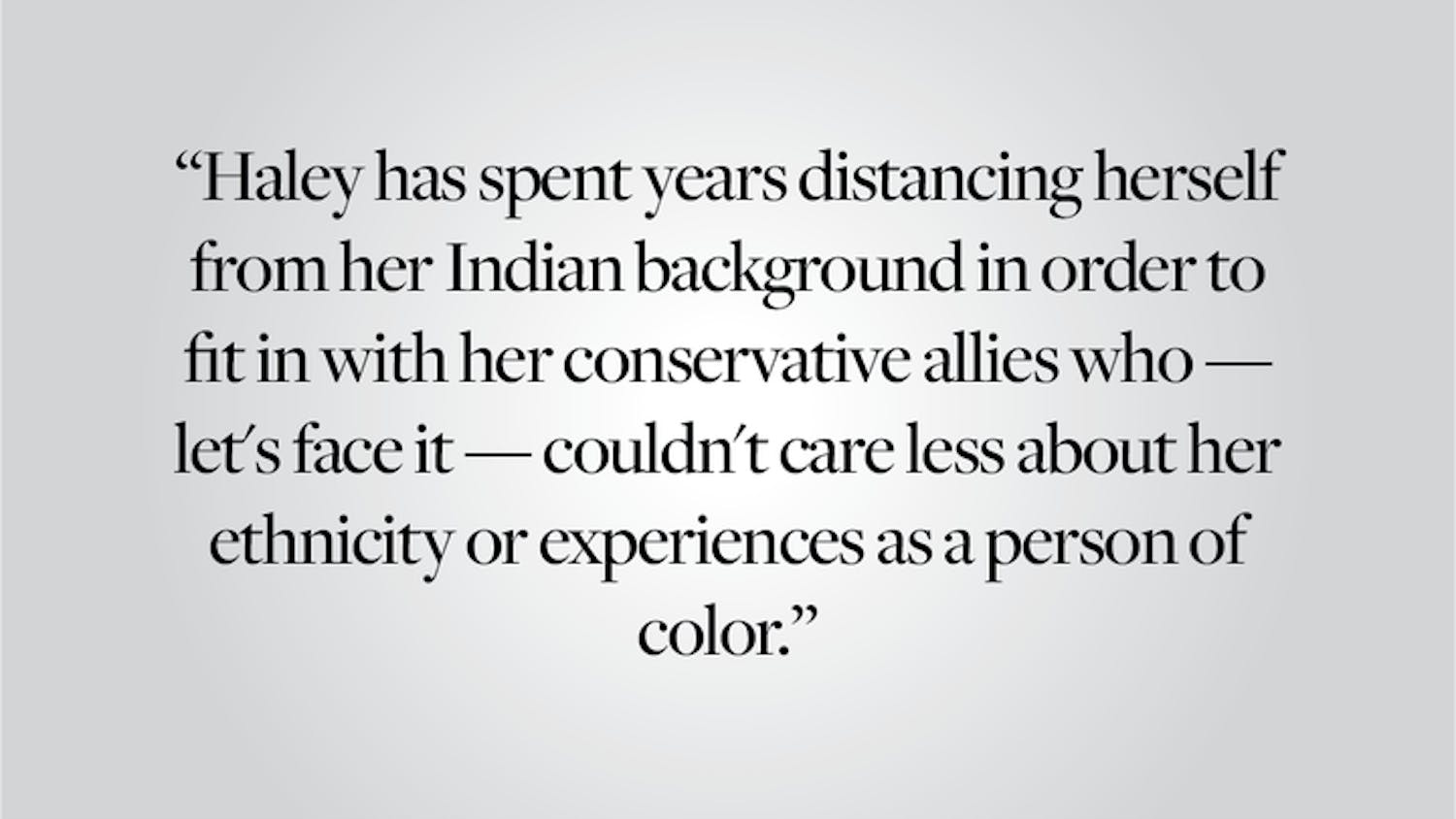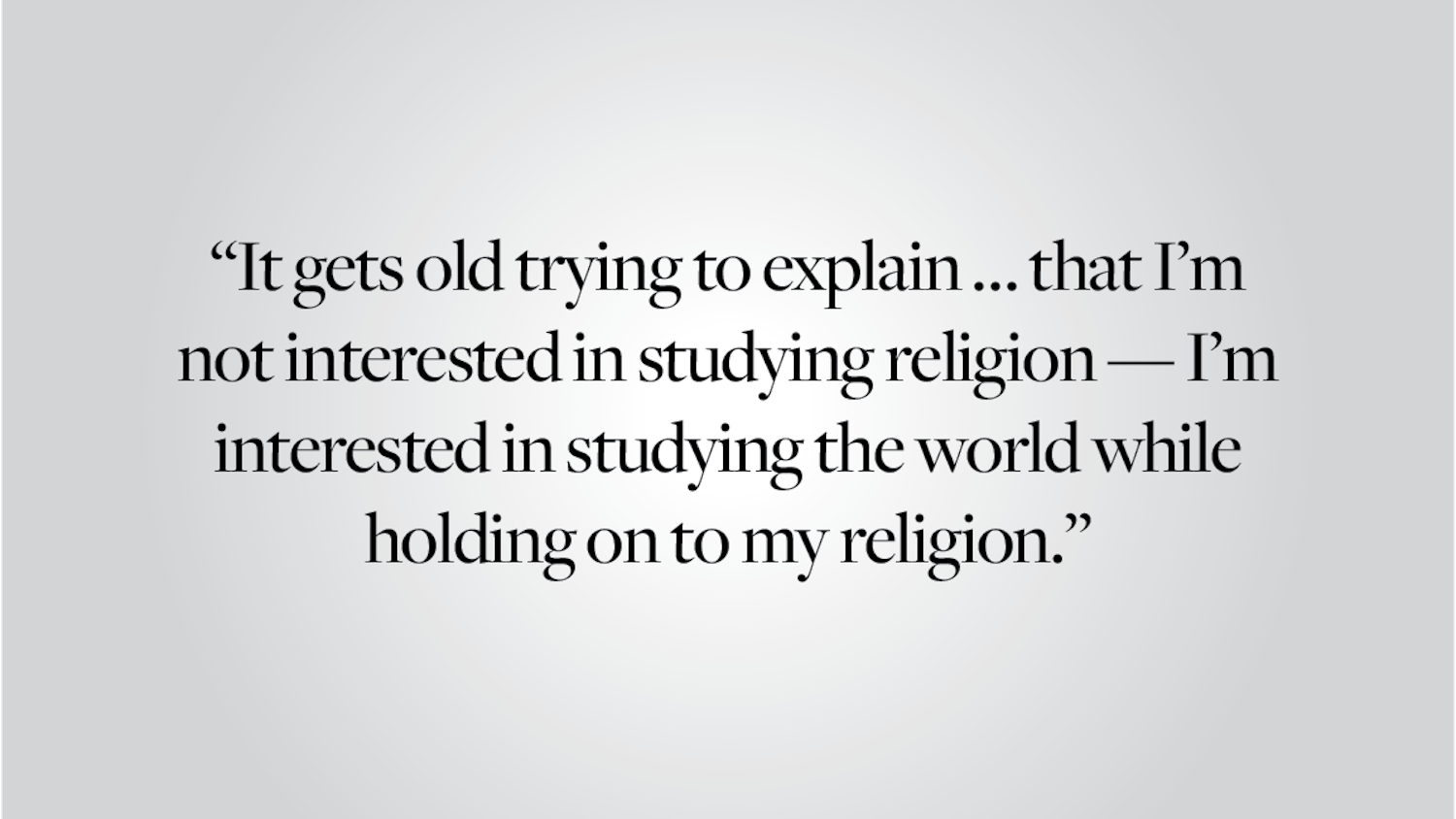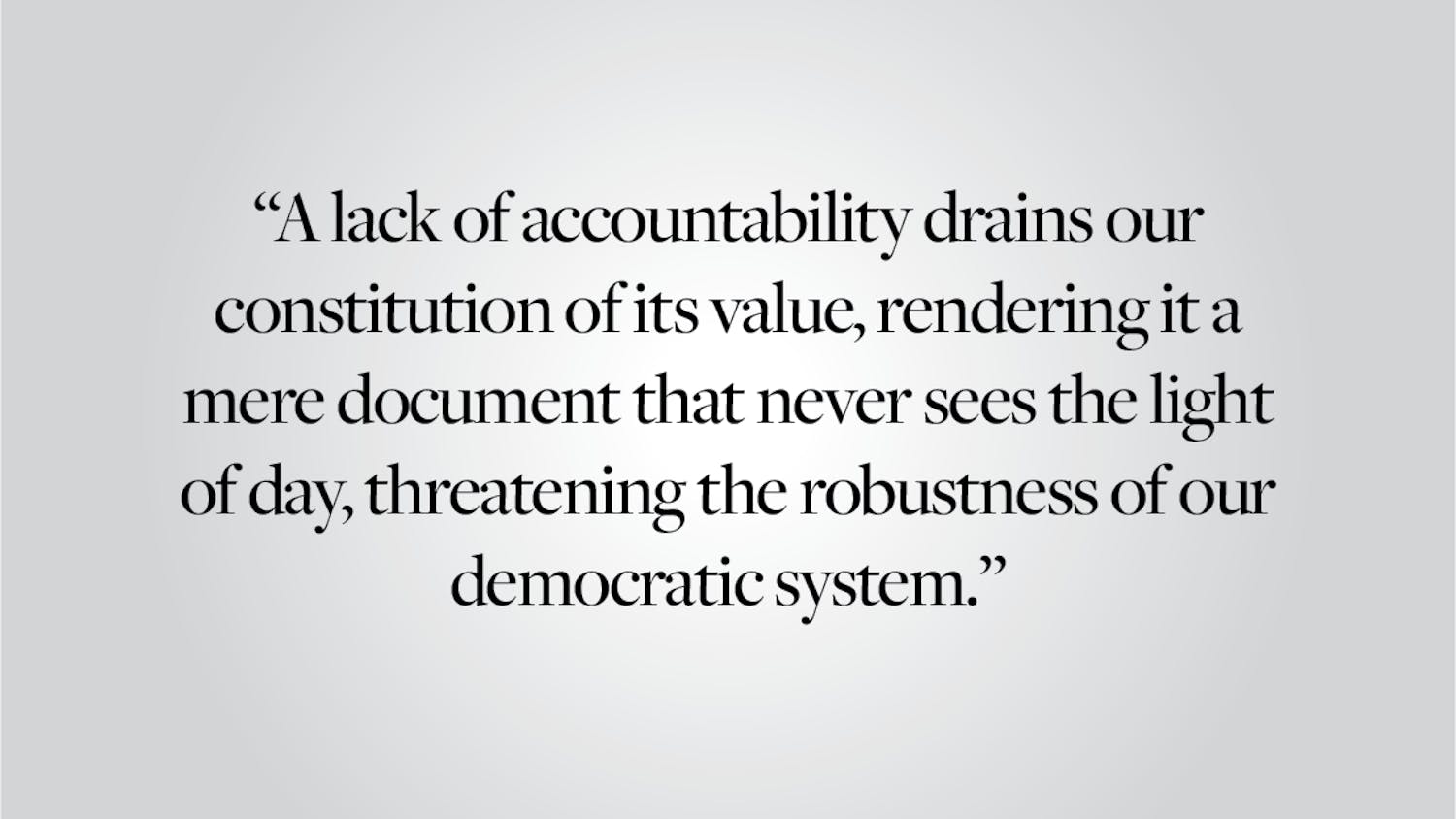Updated Oct. 16, 2015 at 1:45 p.m.
I write this for you and only you. Others will watch. I cannot help that.
When I read Daniella Dichter ’17 and Rohan Gulati’s ’17 white supremacist op-ed “Some speech hurts — and that’s okay,” and when I recognized the Indianness of Gulati’s name, I went into a rage I only enter when I am infuriated by our own people. I wrote and escaped to an open-air balcony, to breathe, to scratch paint onto my canvas. Now I’m in my bed, writing this, knowing it will only further garner an audience for this newspaper’s tyranny. So I speak only to you. Don’t get me wrong: I do not come from love.
Fellow Indian Americans, I will not list the ways in which Whiteness failed us. An analysis of the history of anti-Indian racism never did much to convert those of us who seek to assimilate. Nor will it serve any purpose. Deep down, we know our truth. I urge us to understand it, why it exists and what it’s done to us.
I do not necessarily want to stop our assimilation, for our safety is of concern and Indian culture has failed too many of us. Assimilation for freedom and assimilation for power are different but overlap enormously. When I say “assimilation,” I talk only about assimilation for power and all it encompasses — an assimilation we all do. I have seen and experienced white rejection, eyes that no longer see me as attractive for my skin’s beauty as I let it get darker, voices that grow enraged as I speak louder. So I rush back into assimilation. It is too desperate celebrating myself alone. To be loved by the powerful, by the European Beautiful, is to transcend into bliss and escape the burden of my dark body.
I want to say to us: “Succumb!” We desire freedom from our brownness, or if we don’t hate our skin, we somehow believe Whiteness loves it. But in assimilation, we are violent. To succumb is to hurt ourselves and brutalize even further those deemed lower than us.
There will always be some of us who advocate for Whiteness. It’s a comforting but misguided manifestation of the truth: that our racialization was a mistake, that we Indians are not linked by any thread other than the one in the mind of Whiteness. We are Gujarati, Punjabi, Malayali and split even further within these groups and not even these labels either.
But we who advocate for Whiteness will be picked up by White Power, and we assimilators will represent “Indians.” We will be applauded for our self-immolation, for our voluntary entrance into a pyre in which we enter as brown, hope to come out as white and forget that fire does not work in reverse. Our burnt bodies will step out of the flames into cheers from Whiteness, and we will smile and cry because finally we think we are being seen as white, as blank. But Whiteness applauds only because a brown person has chosen the side of Whiteness; the brownness we sought to escape has now become our inescapable essence. Do you believe that the Dichter and Gulati op-ed would have been published if two white people had written it? They hold our skin hostage. Our shame is their trophy, their prized weapon. This newspaper, Professors Ross Cheit, David Josephson, Glenn Loury, Kenneth Miller ’70 P’02 and Luther Spoehr, President Christina Paxson P’19 and other arrogantly undereducated people and institutions will applaud brownness for coming to their rescue.
And when Whiteness applauds, they will shower us with money. We will forget that many of us are children of immigrants, that a large number of our immigrants are India’s educated seeking better lives outside of India. Many of the rest are family or spouses of the educated who attained citizenship in collateral. Whiteness told us we achieved prosperity through America’s actions alone and neglected to mention our parents were primed in India, failed by India and milked in the United States. They were chosen not by accident but for their economic potential (a promise they kept). For this citizenship we must be grateful; it is a fact that most of us who experienced economic advancement would not have had prosperity in India. But do not let Whiteness convince us we have done this through their help alone, that this economic potential applies to all deemed “Asian” or that other racial minorities can do the same. Do not let Whiteness plant arrogance inside our minds and turn us into weapons. Whiteness does not care for us. Do not befriend it, for it will slit our throats as we sleep.
If you have engaged with the pyre, know that I have too. I continue to, in small but meaningful ways, from my clothes to my language to my complicity, and I cannot stop us, for no true thread connects us.
But those of us who assimilate for power will be proclaimed truly “Indian,” a brand we are forced to adopt. Whiteness has the ability to have other hands deal its racism and the power to uplift the assimilators’ non-white labels. Though we may reject “Indian” — for we are Kannada, Rajasthani, Marathi and split even further and not even these labels either — Whiteness forces it upon us. We have it, so we must pivot. Accept it temporarily, and throw it back. Use our Indian to deconstruct Whiteness’s Indian.
I know how frustrating this is since white people never have to call out their own. They are individuals. We are monolithic. Yet for our safety, we must call out our own. We must do this personally, for what we call “institutional racism” is not a building, not University Hall. It is people, us, individuals who enact oppression upon other individuals — individuals whom we must personally address. We must grab ourselves and then grab others labeled as Indian by their ears — for they are part of us — and say, “No more.” Say it to ourselves loudly. No more assimilation, for it is our suicide. No more assimilation, for it is their (Native, Indigenous, Black, Latinx, Southeast Asian and more) genocide.
Sohum Chokshi ’18 is double concentrating in environmental studies and visual art. He can be reached at sohum_chokshi@brown.edu.




